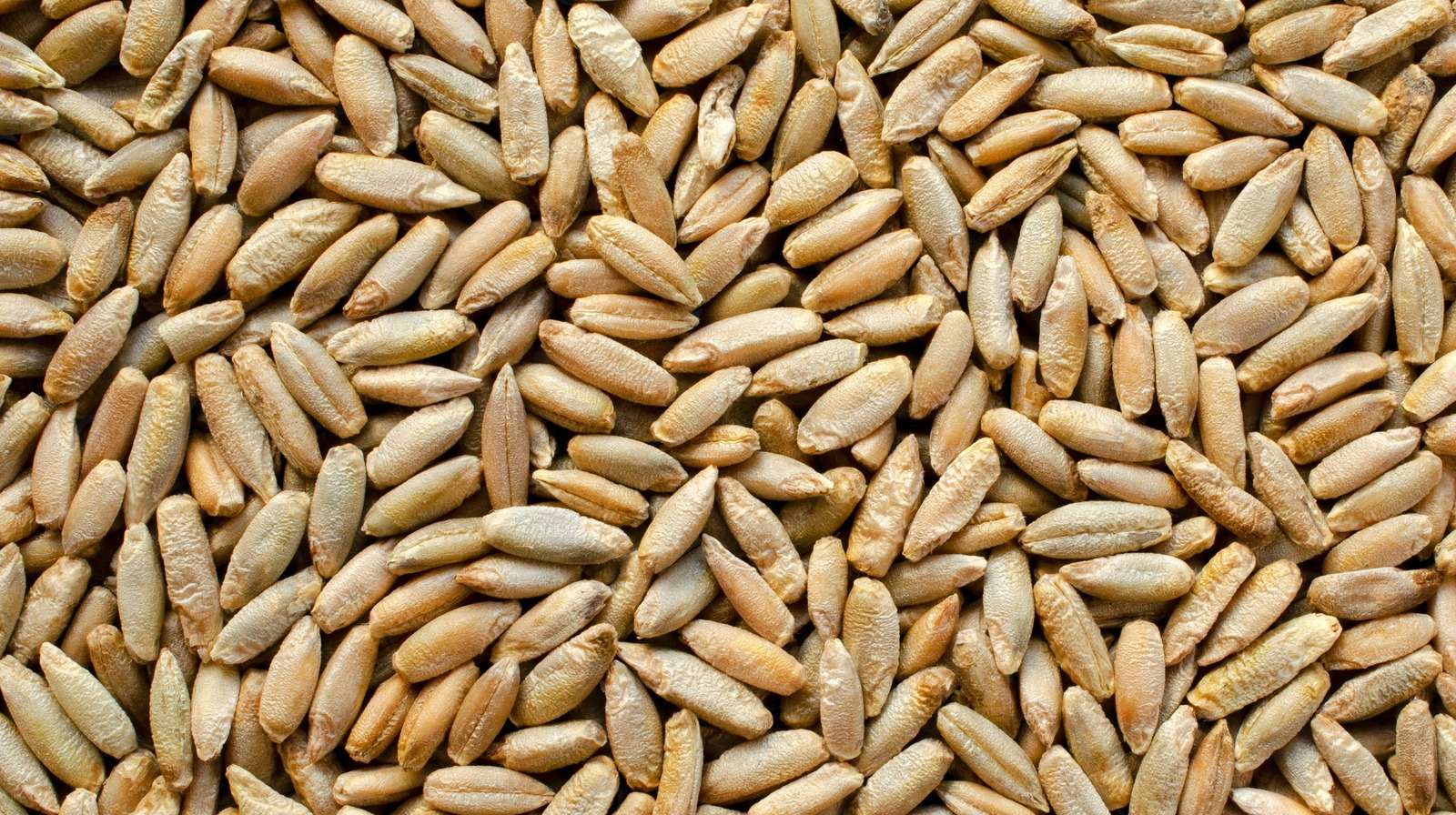
Rye is not just another type of grain. It holds a special place in the world of food and agriculture, with a rich history and a unique set of characteristics that set it apart from other grains. Whether it’s in the form of bread, whiskey, or even as a cover crop, rye has made its mark on the culinary scene.
In this article, we’ll delve into 19 fascinating facts about rye that will give you a deeper understanding and appreciation for this versatile grain. From its origins and cultivation to its health benefits and culinary uses, we’ll cover it all. So, get ready to embark on a journey through the world of rye and discover why it’s worth celebrating.
Key Takeaways:
- Rye is a versatile, nutrient-dense grain with a unique flavor that can be used in bread, whiskey, and brewing beer. It’s high in fiber and can contribute to heart health, making it a delicious and beneficial addition to your diet.
- Rye’s hardy nature makes it suitable for harsh environments, and its lower gluten content makes it a great option for those with gluten sensitivity. From promoting weight management to adding variety to your diet, rye offers a range of benefits and culinary possibilities.
Rye is a versatile grain.
Rye is a type of cereal grain that is often used for making bread, whiskey, and other delicious products.
Rye is high in fiber.
One of the key nutritional benefits of rye is its high fiber content, which can help promote a healthy digestive system.
Rye is rich in nutrients.
Rye contains essential nutrients, including manganese, selenium, phosphorus, and magnesium, which are important for maintaining overall health.
Rye has a distinct flavor.
The flavor of rye is often described as earthy, nutty, and slightly sweet. It adds a unique taste to bread and other baked goods.
Rye bread has a dense texture.
Rye bread is known for its dense texture, which makes it an excellent choice for hearty sandwiches and toasts.
Rye can grow in harsh environments.
Rye is a hardy crop that can tolerate colder temperatures and poor soil conditions, making it a suitable option for farmers in various regions.
Rye has a long history.
Rye has been cultivated for thousands of years and has played a significant role in the diets of many cultures throughout history.
Rye whiskey has a distinctive flavor.
Rye whiskey is known for its spicy and robust flavor profile, which sets it apart from other types of whiskey.
Rye can help regulate blood sugar levels.
The high fiber content in rye can aid in stabilizing blood sugar levels, making it a beneficial grain for individuals with diabetes.
Rye is popular in Scandinavian cuisine.
Rye is a staple in Scandinavian countries, where it is used in various dishes, including traditional dark rye bread.
Rye can be used in brewing beer.
Rye is sometimes used as an ingredient in beer brewing to add complexity and enhance the flavor profile.
Rye has a lower gluten content compared to wheat.
For individuals with gluten sensitivity, rye can be a suitable alternative as it contains less gluten than wheat.
Rye can help promote weight management.
The high fiber content in rye can help you feel fuller for longer, making it a great addition to a balanced diet for weight management.
Rye can contribute to heart health.
Studies have shown that incorporating rye into your diet can help lower cholesterol levels and reduce the risk of heart disease.
Rye is a nutrient-dense grain.
With its rich nutrient profile, rye provides essential vitamins and minerals that support overall health and well-being.
Rye has a lower environmental impact compared to other grains.
Rye requires fewer pesticides and fertilizers to grow, making it a more sustainable choice for farmers and the environment.
Rye can add variety to your diet.
By including rye in your meal plan, you can diversify your grain choices and enjoy new flavors and textures.
Rye has a satisfying crunch.
Rye flakes and rye crisps offer a crunchy texture and are a great option for adding some excitement to your salads or yogurt.
Rye can be used as a cover crop.
As a cover crop, rye can help suppress weeds, prevent soil erosion, and improve soil fertility.
So there you have it, 19 fascinating facts about rye. From its versatility to its nutritional benefits and unique flavors, rye is a grain worth exploring in your culinary adventures. Whether you enjoy rye bread, whiskey, or want to experiment with using it in your cooking, the possibilities are endless. So go ahead, embrace this ancient grain and discover all the delicious ways to incorporate it into your diet!
Conclusion
In conclusion, rye is not just a type of grain that is commonly used in baking bread. It is a versatile and nutritious ingredient that has a rich history and numerous health benefits. Whether you enjoy rye bread, rye whiskey, or rye-based dishes, you can now appreciate the many fascinating facts about rye. From its origins in Eastern Europe to its role in preventing heart disease, rye truly deserves a place of prominence in our diets. So next time you come across rye, take a moment to savor its unique flavors and appreciate all that it has to offer.
FAQs
1. Is rye gluten-free?
No, rye contains gluten. It is not suitable for individuals with gluten allergies or celiac disease.
2. Can rye be used as a substitute for wheat in baking?
Yes, rye flour can be used as a substitute for wheat flour in baking, but it will result in a denser and heavier texture.
3. Does rye contain more nutrients than other grains?
Rye is packed with nutrients such as fiber, protein, and minerals like magnesium and phosphorus. It is indeed a nutritional powerhouse.
4. What are some popular rye dishes?
Some popular rye dishes include rye bread, rye whiskey, rye pancakes, and rye porridge. These dishes showcase the versatility of rye in both savory and sweet recipes.
5. Can rye help with digestion?
Yes, rye is known to promote healthy digestion due to its high fiber content. Including rye in your diet can help regulate bowel movements and prevent constipation.
6. Does rye have any potential health benefits?
Rye has been linked to a lower risk of heart disease, improved blood sugar control, and reduced inflammation. It is also known to provide long-lasting energy and promote satiety.
7. Can rye be eaten raw?
Rye, like most grains, is not typically consumed raw. It is usually processed through cooking, baking, or brewing before consumption.
8. What is the significance of rye in Eastern European cuisine?
Rye has been a staple in Eastern European cuisine for centuries. It is deeply ingrained in their culinary traditions, with dishes like rye bread and sourdough rye soup being popular favorites.
Rye's versatility extends beyond bread, offering a satisfying crunch in Melba toast and depth to whiskey. Nutritional benefits abound, but rye's impact reaches further. From Scandinavian cuisine to cover crops, rye's fascinating history and cultural significance rival that of literary classics. Uncover more rye bread facts, explore Melba toast's nutrition, and delve into the astounding world of The Catcher in the Rye. Each topic offers a unique perspective on this remarkable grain, inviting you to expand your knowledge and appreciation for rye's many facets.
Was this page helpful?
Our commitment to delivering trustworthy and engaging content is at the heart of what we do. Each fact on our site is contributed by real users like you, bringing a wealth of diverse insights and information. To ensure the highest standards of accuracy and reliability, our dedicated editors meticulously review each submission. This process guarantees that the facts we share are not only fascinating but also credible. Trust in our commitment to quality and authenticity as you explore and learn with us.


